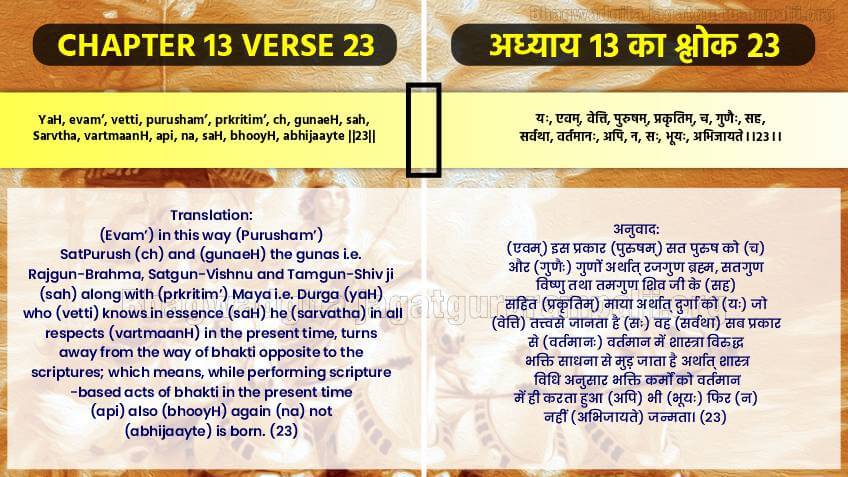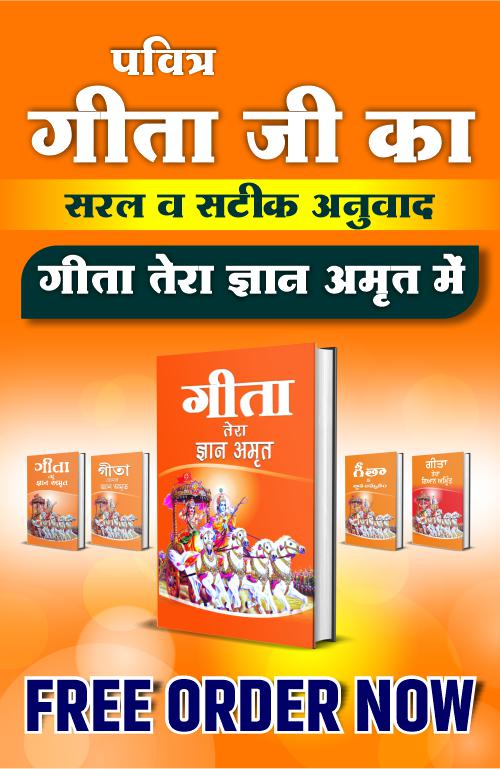
YaH, evam’, vetti, purusham’, prkritim’, ch, gunaeH, sah,
Sarvtha, vartmaanH, api, na, saH, bhooyH, abhijaayte ||23||
Translation: (Evam’) in this way (Purusham’) SatPurush (ch) and (gunaeH) the gunas i.e. Rajgun-Brahma, Satgun-Vishnu and Tamgun-Shiv ji (sah) along with (prkritim’) Maya i.e. Durga (yaH) who (vetti) knows in essence (saH) he (sarvatha) in all respects (vartmaanH) in the present time, turns away from the way of bhakti opposite to the scriptures; which means, while performing scripture-based acts of bhakti in the present time (api) also (bhooyH) again (na) not (abhijaayte) is born. (23)
Translation
In this way, he who knows SatPurush and Maya i.e. Durga along with the gunas i.e. Rajgun-Brahma, Satgun-Vishnu and Tamgun-Shiv ji in essence, he in all respects turns away from the way of bhakti opposite to the scriptures in the present time i.e. while performing scripture-based acts of bhakti in the present time is not reborn.
यः, एवम्, वेत्ति, पुरुषम्, प्रकृृतिम्, च, गुणैः, सह,
सर्वथा, वर्तमानः, अपि, न, सः, भूयः, अभिजायते।।23।।
अनुवाद: (एवम्) इस प्रकार (पुरुषम्) सतपुरुषको (च) और (गुणैः) गुणों अर्थात् रजगुण ब्रह्म, सतगुण विष्णु तथा तमगुण शिव जी के (सह) सहित (प्रकृतिम्) माया अर्थात् दुर्गा को (यः) जो (वेत्ति) तत्त्वसे जानता है (सः) वह (सर्वथा) सब प्रकारसे (वर्तमानः) वर्तमान में शास्त्रा विरुद्ध भक्ति साधना से मुड़ जाता है अर्थात् शास्त्रा विधि अनुसार भक्ति कर्मों को वर्तमान में ही करता हुआ (अपि) भी (भूयः) फिर (न) नहीं (अभिजायते) जन्मता। (23)
